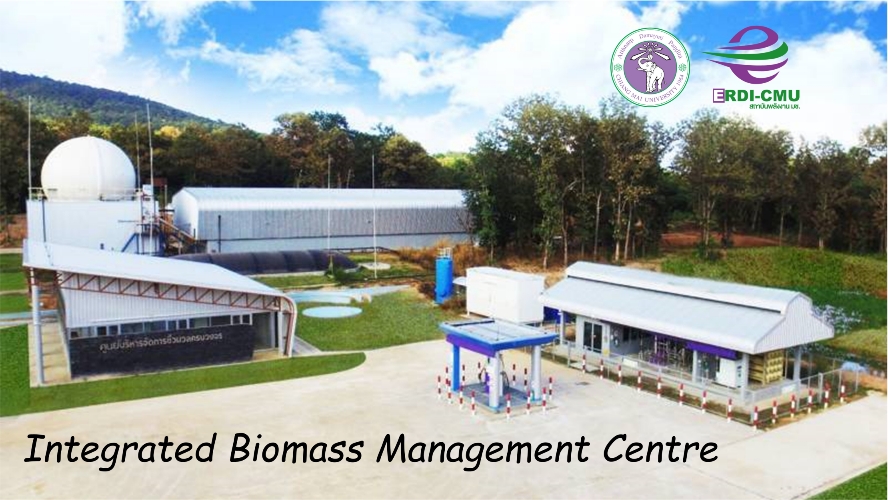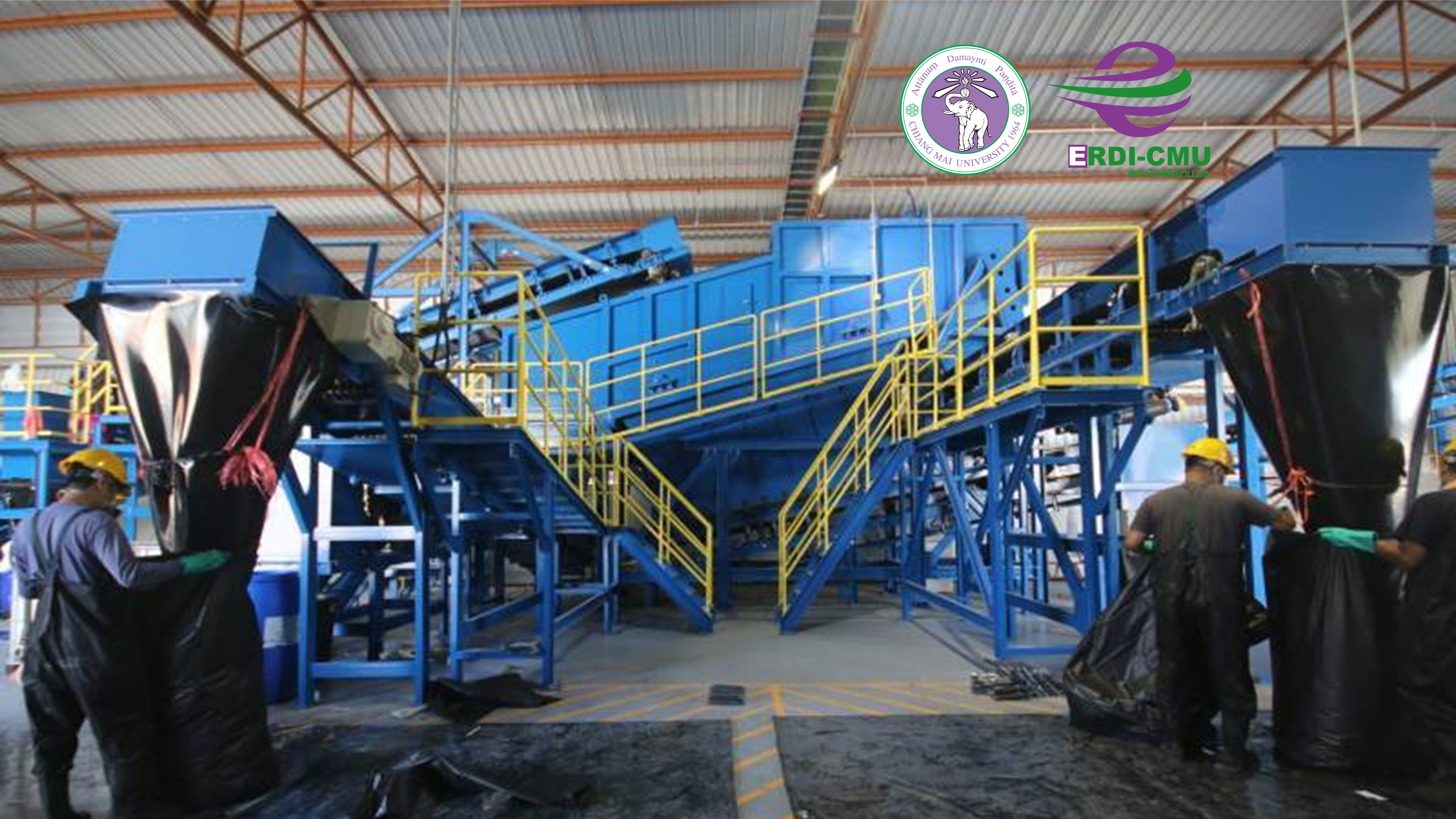Article

CMU Say No! to Plastic Bags & Transform Waste to Energy
According to Chiang Mai University (CMU)’s strategy on environment and energy, CMU Smart City – Clean Energy, Waste Management and the Sustainable Development Goals (SDGs), a campaign “CMU Say No! to Plastic Bags” has been created since October 2018 in order to reduce the amount of plastic wastes within the university. Moreover, the Integrated Biomass Management Centre has been developed using a ‘zero waste’ principle to manage garbage produced within the CMU community. The idea is to reduce the amount of garbage from the source, minimising the disposal of waste, and then to recycle existing garbage into energy.

Picture by ERDI CMU
There are around 46,000 members of CMU’s community, and each day there are about 15 tonnes of garbage sent to the sorting facility of the Integrated Biomass Management Centre. Machines are used to sort organic substances or food waste from dry waste in order to be used in biogas fermentation. The resulting product, compressed biomethane gas (CBG), is used as one of the major fuel for CMU public buses, which offers service for students and staff, proving the practical benefits of this alternative energy generated from waste. The plastic waste is also turned into refuse-derived fuel (RDF) and used for making paving blocks and asphalt in road construction, which has now been piloted in the Integrated Biomass Management Centre. For yard waste derived from the university, it was turned into activated charcoal and pellet fuels using thermal conversion technology, and the grease is used in biodiesel production. Furthermore, there is a research project on the recycling of plastic containers for asphalt concrete road construction, which is a collaboration between the Department of Highways, Department of Rural Roads, Dow Chemical Thailand Group, Siam Cement Group, and CMU.

Picture by ERDI CMU
The Integrated Biomass Management Centre has successfully reduced landfill disposal and increased the generation of renewable clean energy. This has led to the generation of 900 m3 of biogas per day, 5,200 kW of power per hour, and 18,000 kg of CBG per year. Furthermore landfill and burn disposal has been reduced by 4,050 tonnes per year, wet and food waste landfill by 500 tonnes per year, grease landfill by 125 tonnes per year, and carbon emission by 22,000 tonnes CO2 per year. In addition to efficient waste management and recycling, this initiative can serve as a model for future application and adaptation on the community scale.
Credit: CMU news.
Back



